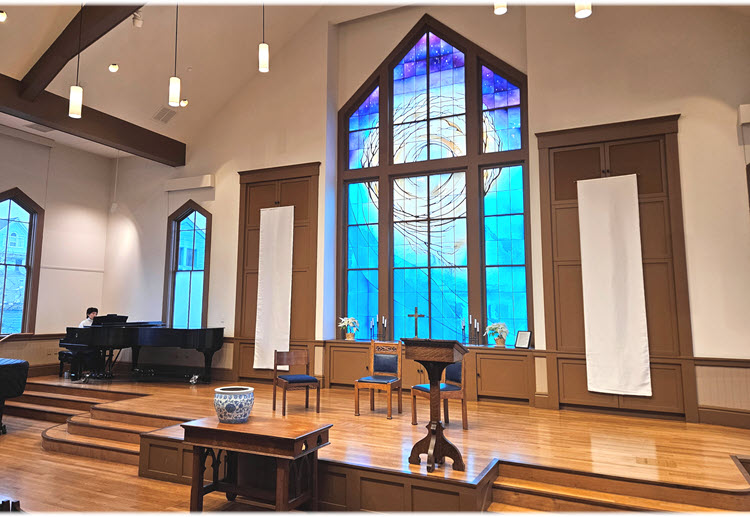Last week I spent three days in San Francisco for the Faith and Justice Winter Gathering: The Future of Faith: Imagining Life Together, which included some special gatherings for the organization’s Preaching Justice Fellows. I’m honored to be among this group (for more on the fellowship, check out I’m a Preaching Justice Fellow!).
Overview
While, the general format of this three day experience was similar to the Fall Gathering in Minneapolis (for more on my experience there check out Reset Your Rhythm and Visiting the George Floyd Memorial), the overall experience was a bit different. This Gathering, however, was enriched by a return home as the event was hosted in the same city as Faith and Justice. As a result, more locals attended. The bigger difference, however, was a result of timing. Recent changes in America impacted the event in ways no one could have imagined during the planning stages (notably, I understand all participants except for one currently reside in the United States).
I’m deeply grateful to the Rev. Dr. Peter Choi and the Faith and Justice team for the way shaped this experience providing rich content alongside open time and space for processing, networking, and holy conversations.
A thorough review of the experience would require far more words than are suitable for a blog post. As such, I’ll share a bit about the primary speakers from each day alongside one big idea I have carried with me that will impact my ministry. I will exclude my Preaching Justice Fellowship specific experiences from what follows. Those will be published later as a separate post.
Day 1
The Gathering kicked off on Thursday evening with a presentation from Dr. Hahrie Han, the Inaugural Director of the SNF Agora Institute, the Stavros Niarchos Foundation Professor of Political Science, and Faculty Director of the P3 Research Lab at Johns Hopkins University. This second speaker was the Rev. Dr, Angela Parker, Associate Professor of New Testament and Greek at McAfee School of Theology at Mercer University. After each presented, they sat down for a conversation moderated by Rev. Peter Choi, establishing a pattern that would be repeated each day.
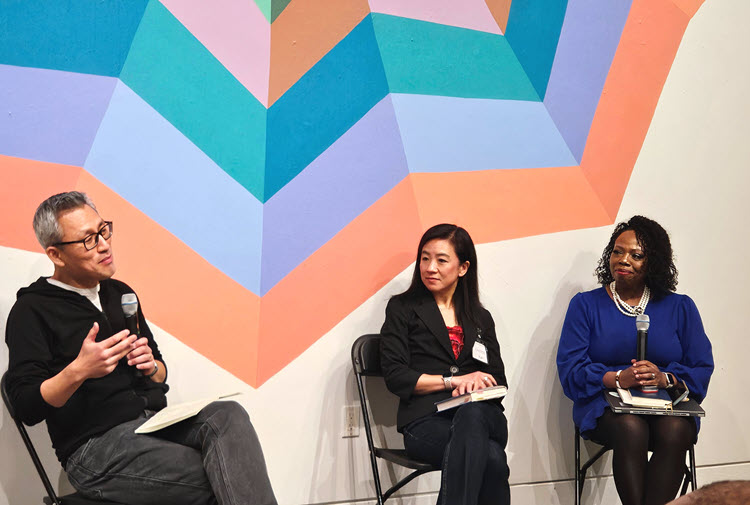
Key takeaway: The local church can have an outsized impact on its community. This impact can be transformational. Additionally, it can begin in non-traditional ways. I look forward to exploring what this means for the congregation I serve and those I will serve in the future. (I can’t wait to read Dr. Han’s new book: Undivided: The Quest for Racial Solidarity in an American Church.
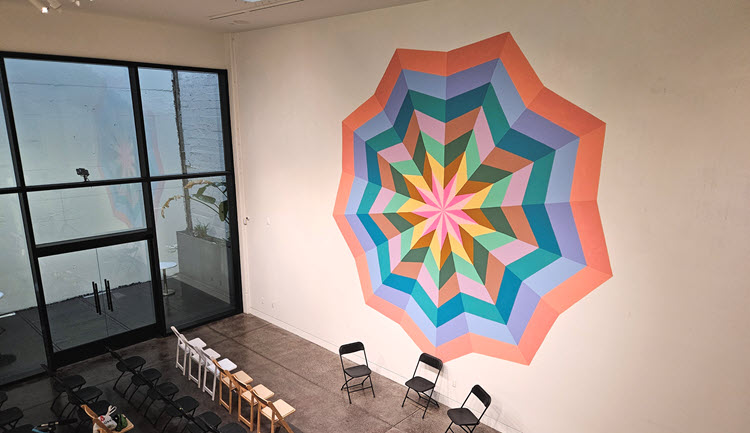
Day 2
Following a moving opening worship experience to open the time together, the second day featured talks by Rev. Adriene Thorne and Rev. Dr. Gail Song Bantum. Rev. Thorne serves as Senior Pastor of Riverside Church in New York City. Rev. Gail Song Bantum (just concluded service as Lead Pastor of Quest Church in Seattle. In addition to their pastoral wisdom and experience, each is also a classically trained artist – Thorne as a ballet dancer and Bantum as a musician.
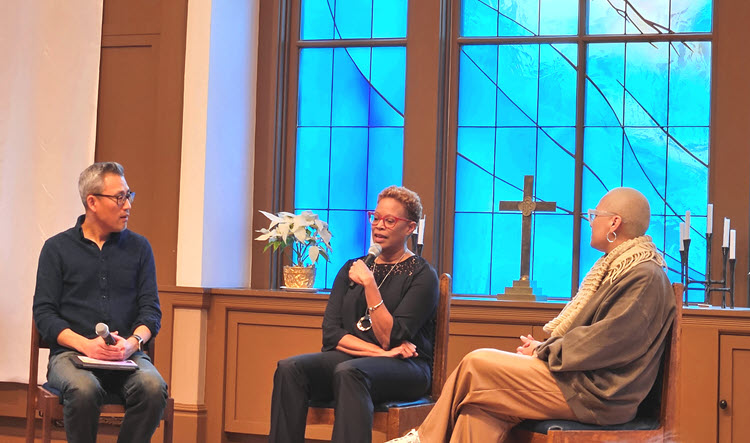
Key takeaway: Ministry has changed dramatically since I went to seminary and the pace of changes is unlikely to slow down. Improvisation is an important tool in everyone’s ministry tool box. Leaning in to improvisation more often is a gift I can give myself that will also be a gift to the broader communities I serve.
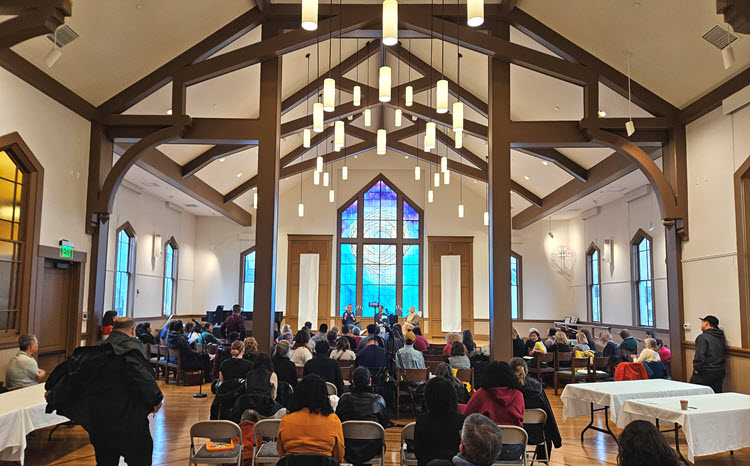
Day 3
The third day started with a deeply moving and highly participatory opening worship experience led by Rev. Marissa Danney who serves as Chaplain Educator, and Associate Chaplain at University of Redlands San Francisco Theological Seminary. The day’s speakers were Rev. Dr. Paula Stone Williams and Dr. Yii-Jan Lin. The Rev. Dr. Williams is Pastoral Counselor and internationally known speaker on gender equity, LGBTQ advocacy, and religious tolerance. Dr. Lin is Associate Professor of New Testament at Yale Divinity School.

Key takeaway: Biblical texts have long been used to support dehumanizing endeavors. Most recently in the American context, this includes efforts to erase LGBTQ folks and to remove immigrants. Understanding both my own religious beliefs and those underlying this alternative perspective create a foundation upon which to begin building a different shared future. (I can’t wait to read Dr. Lin’s new book: Immigration and Apocalypse: How the Book of Revelation Shaped American Immigration.)
So What?
The Future of Faith is something each of us is tasked with helping create.
As we journey together, we must
- remember that we are better together as we nurture existing relationships while opening ourselves to new ones
- become better and bolder storytellers
- remain steadfast in our commitment to be people of faith and justice.
